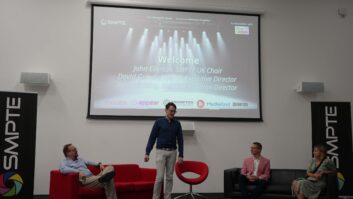SMPTE has announced the launch of new offering Technical Specifications which will enable industry groups and business users to create public and robust delivery documents, to constrain standards, and to foster new workflows that engender long-term interoperability.
The TSPs will compliment SMPTE’s Standards by being proactive to rapidly evolving industry technologies and workflows.
The first TSP has been published with the document number “SMPTE TSP 2121:2018” and is titled “IMF Application DPP (ProRes).” It was proposed by the Digital Production Partnership (DPP), and it builds on the existing Interoperable Master Format standard developed and published by SMPTE, which was originally designed for streamlining the distribution of premium feature film content.
“The global market for quality content has brought enormous opportunity for media organisations by creating demand for different versions of master material. That opportunity brings with it great complexity,” said DPP managing director Mark Harrison. “That’s the issue that ‘IMF Application DPP (ProRes)’ solves: it enables faster, less expensive, and higher quality versioning for specific broadcast and online applications, along with financial and operational benefits brought by reduced storage and improved flexibility and tracking.”
The DPP will now launch a compliance testing program for “SMPTE TSP 2121:2018 IMF Application DPP (ProRes)” which will provide buyers and sellers with the confidence that DPP-tested tools and IMF packages will be interoperable and can be exchanged globally.
“Specifications are a part of SMPTE’s future,” said SMPTE Standards vice president Bruce Devlin. “With ‘IMF Application DPP (ProRes),’ we are beginning a new chapter in SMPTE’s activities to encourage global interoperability and to foster the emergence of new and stable technologies.”







